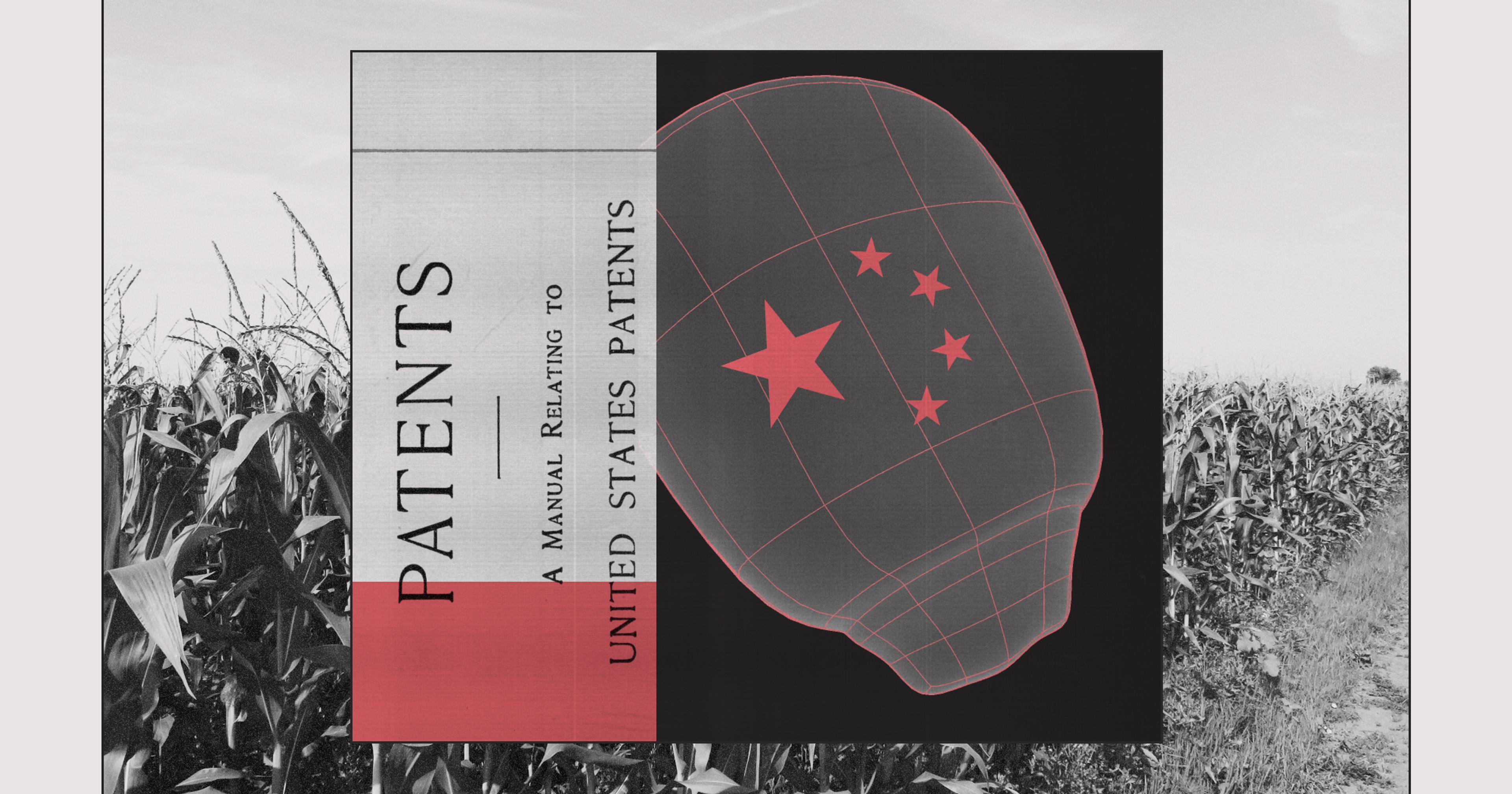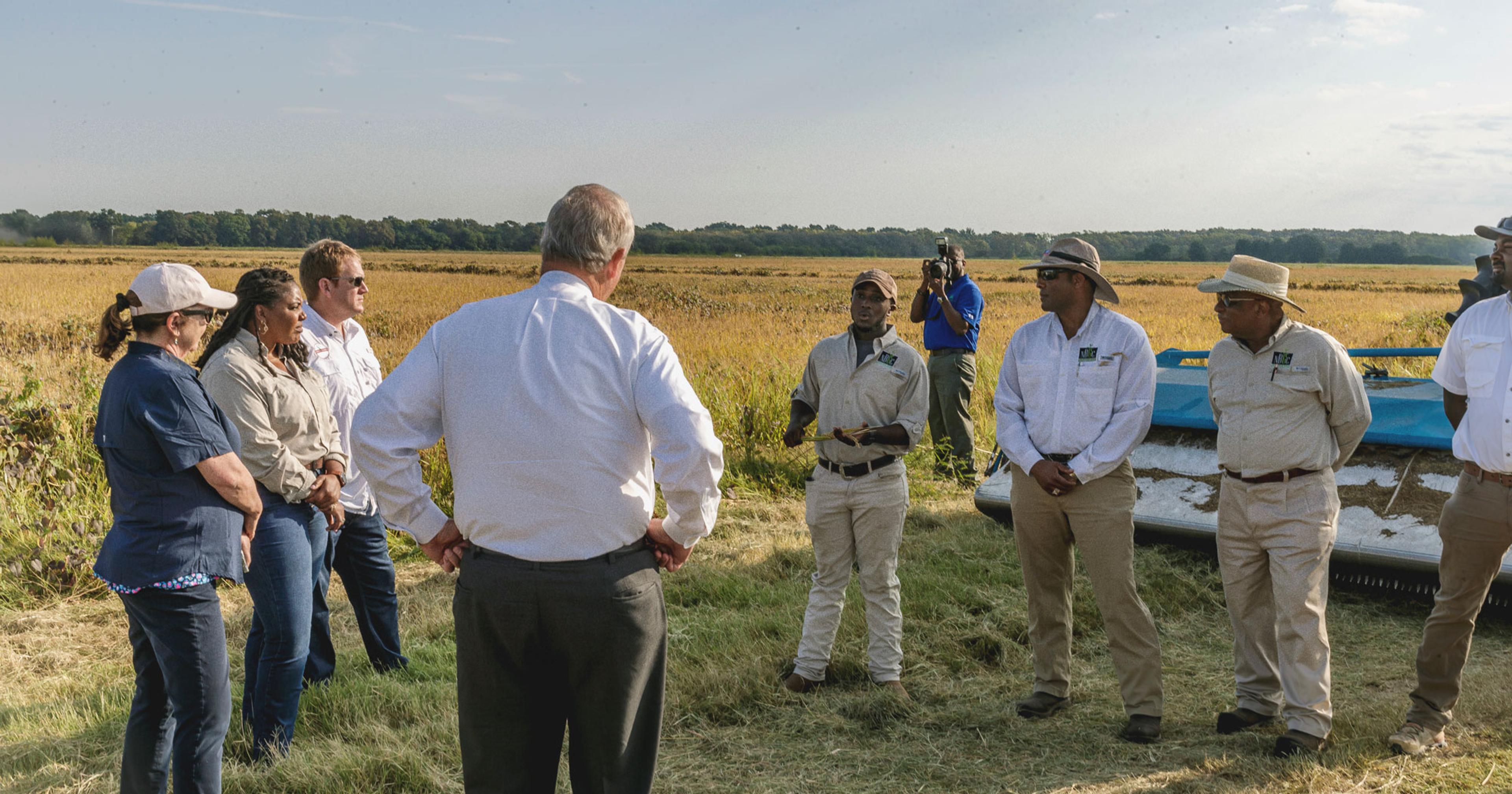Many American farmers are locked into costly annual contracts for seeds that used to be free. Meanwhile, U.S. officials are focused on China.
Roughly a decade ago, Chinese national Mo Hailong caught the attention of the FBI and the DOJ because he was stealing corn seeds. In a scheme that played out for five years before his conviction in 2016, Mo was sending seeds from the Midwest, where he owned two farms, back to China.
“Contained within the stolen inbred seeds — which, unlike common hybrid seeds, can be replanted year after year — were the valuable trade secrets of U.S. companies DuPont Pioneer and Monsanto,” the FBI wrote of the case in a later blog post.
According to the agency, they spent four years tracking Mo, a Chinese citizen with legal permanent residency in the U.S. The case “led agents on cat-and-mouse surveillance operations across the Midwest and took them on a deep dive into the biotechnology of proprietary corn breeding,” they wrote.
FBI officials had originally been contacted by DuPont security staff, which led them to launch an investigation. It was one of many cases where federal law enforcement targeted Chinese nationals in an attempt to protect U.S. agribusiness interests — a tension reinforced just last week when the Air Force declared a plan for a Chinese company to purchase a North Dakota corn milling plant “a significant threat to national security.”
Seeds are big business for a handful of U.S. corporations, who spent decades fighting for the ability to copyright their seeds’ genetic information. In the years since, courts have routinely protected the ability of companies to sell GM seeds to farmers under the strict condition that they must buy more each year, rather than plant the seeds that come from their crops. Many of the federal government’s cases against Chinese nationals involve protecting these very types of seeds.
Several high-profile convictions of scientists and academics helped clarify the picture that U.S. prosecutors have attempted to paint: Chinese spies were targeting the intellectual property of seeds to undermine the competitiveness of American farmers. Federal officials have directed a lot of money and manpower into protecting this IP — and the huge corporations that hold their patents.
Costly Contracts
Courts and federal agencies in the U.S. have routinely argued for the importance of protecting the IP of seeds developed by large corporations, on the basis that reproduction of these seeds by foreign interests amounts to unfair business practices.
For many domestic farmers, these genetically modified (GM) seeds are a vital to ensuring they can compete within the U.S. economy. GM row crops are built to ensure higher yields and protection against pests or herbicides; many farmers said that buying copyright-protected seeds is simply one of the consequences of the business.
That said, all a grower needs to do is open a package of seeds to enter into an agreement with the company that they will only use the seeds for one year’s planting. And in order to protect their patents, seed producers have been willing to sue farmers.
In 2013, Monsanto brought a case all the way to the Supreme Court against an Indiana farmer who was accused of replanting its seeds. The highest court ruled unanimously in Monsanto’s favor, reaffirming the idea that biological organisms are subject to IP laws.
“I don’t want to go to court, so I do things the way I’m supposed to.”
Interviewed by Purdue’s student newspaper during the case, a nearby Indiana farmer said he was committed to pay Monsanto’s fees because he didn’t want to get sued. “I don’t want to get in this guy’s situation and I don’t want to go to court, so I do things the way I’m supposed to,” row crop farmer Larry Gamble told a reporter from the Purdue Exponent. At the same time, Gamble lamented, “[Monsanto has] made too much money on us.”
Of course, some farmers have resisted genetically modified seeds. An early survey by a Penn State Law School researcher found that farmers were mixed on these types of seeds because they allowed for higher profit margins, but also forced farmers to rely on pricey corporate seeds instead of reusing ones they collect from their crops.
Mollie Engelhart, owner and chef at Sow a Heart Farm in Fillmore, California, said she’s had to buy more expensive organic seeds because of IP rules that drive up prices. At the same time, she considered seed prices less of a problem than the ways corporate agriculture forces small farms to “get bigger and bigger” to remain competitive.
“The only reason I exist at this point is because I’m the end user and I own a restaurant,” Engelhart said. “There’s limited ability for any of us small farms to compete anymore.”
Can You Even Own Seeds?
The government protecting seed IP is a relatively new phenomenon; for millennia, farmers reused seeds to cultivate their crops each year. The U.S. government for decades actually preserved and distributed seeds for free with the aim of supporting agriculture. This process constituted about one-third of USDA’s early budgets in the 1860s — they distributed more than 1 billion packages of seeds.
“It wasn’t until about the early 1900s that companies decided they could make money off of seeds and plants and wanted more protection around that,” Karen Stevenson, a licensing associate at the University of Idaho, told the state’s wheat commission in 2019. It would take those companies about 70 years to realize the goal of enforcing patents on seeds.
The Plant Patent Act passed in 1930, but that law only applied to new plants that were a product of asexual reproduction — the law explicitly excluded patenting seeds. In the years afterward, according to to the Center for Food Safety, an organizing group that has routinely brought litigation against companies like Monsanto and DuPont, the farmer-friendly exclusion for seeds was maintained. Eventually, a separate law was created —1970’s Plant Variety Patent Act — which allowed companies to patent “novel” sexually reproducing plants, but still allowed farmers to save and replant their seeds.
“It wasn’t until the early 1900s that companies decided they could make money off of seeds and plants and wanted more protection around that.”
Then in 1980 a Supreme Court case ruled that proprietary bacteria could be patented, foreshadowing a shift in how the highest court would handle seed IP. The court ultimately ruled in 2001 that seeds could be registered under utility patents. Since then, companies like Bayer and DuPont have routinely sought to register their seeds under utility patent rules, allowing them to bar farmers from replanting seeds, effectively upending millenia of agricultural practice.
Now, activists argue that farmers can unknowingly or mistakenly violate that IP just by having similar seeds, and expose themselves to lawsuits. Farmers are safest if they buy their seeds, as opposed to saving and replanting, because they can be sued even if they accidentally grow IP-protected crops.
Just four multinational biotechnology corporations now account for at least 50 percent of sales in the global seed market. In 2019, seeds and plants cost U.S. farmers a total of $21.2 billion, according to the USDA, nearly 6 percent of their operating budgets. And IP-protected seeds — along with the big money they command — have become a significant piece in the contentious relationship between China and the U.S.
Seeds of Change
For the past decade, the executive branch of the U.S. government has folded agriculture into its escalating tensions with China, arresting multiple people accused of stealing or helping steal trade secrets on behalf of Beijing’s government. This was partly due to official Chinese statements: Agriculture is listed as one of the key areas they want to expand.
Though the arrests started under the Obama administration, the situation dramatically spiraled under former President Donald Trump when he set off a trade war with China. Trump’s DOJ also launched the China Initiative, which led federal officials to target suspected Chinese collaborators in many industries, including agriculture.
The Biden administration, meanwhile, has taken several steps to reduce the trade war pressure that ramped up during Trump’s time in office. First, citing arguments from human rights groups, Attorney General Merrick Garland closed the China Initiative at the Department of Justice, which was created to target Chinese officials operating within the U.S.
Then in January, USDA announced a new approach: collaboration instead of trade war.
“We are operating on two levels with China.”
“We’re reinvesting in that relationship,” Undersecretary for Trade and Foreign Agricultural Affairs Alexis Taylor told reporters during an announcement that the administration plans to use diplomacy to work out tensions and focus on innovation. As to whether that approach can hold, especially in light of increasing political tensions between the two countries (See: spy balloon), it’s anyone’s guess.
“We are operating on two levels with China,” wrote Washington Post columnist Fareed Zakaria earlier this week. “One is geopolitical, where tensions have been growing rapidly. But the other is commercial, and it is determined largely by Chinese and American consumers and firms, not governments. That relationship remains deeply intertwined and interdependent. Can these two realms continue to move forward while working at cross-purposes? It seems highly unlikely.”
The seeds of change may be afoot.










